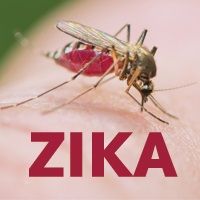Zika Virus: 3 Things to Consider if You're Planning to Travel South
The Zika virus has become a major international health concern. If you're planning a trip to Central or South America, consider these questions before you go.

The 2015-2016 winter has had its share of blizzards, cold snaps, and other wacky weather. And as spring winds down to a close, many people will be turning their attention to spring and summer vacations in warmer climates down south.
However, if you’re planning to visit parts of Central and South America, you may need to consider something beyond which hotel you want and which days to travel. You might also need to think about the Zika virus.
As anyone who reads the news is well aware, Zika is a mosquito-borne virus that has relatively minor symptoms in most adults, but which is believed to be linked severe birth defects, most notably a spike in microcephaly in Brazil.
Zika originated in Africa, but it has lately been spreading rapidly in South America and has even been found in the US.
So what should you do if you are planning to travel to Central or South America in the coming months? Here’s a guide to help you think about your travel plans. It’s also a good idea to talk with your physician or travel agent to ensure you have the latest information.
How vulnerable are you?
As mentioned above, most people who get the virus have relatively minor symptoms such as fever, rash, joint pain, and red eyes, according to the US Centers for Disease Control and Prevention. Thus, if you’re a healthy adult, the risk of traveling to a Zika-affected country might be minimal, particularly if you take steps to prevent mosquito bites, such as wearing long sleeps and insect repellent. However, if you are pregnant or trying to get pregnant, it might be a good idea to wait, the CDC says. The same holds true for the partners of pregnant women or women trying to get pregnant, since the virus can be transmitted sexually.
Where are you going?
At the moment, the risk depends a lot on the location of your travels. Even within Brazil, certain areas have been hard hit and others have had relatively few cases of Zika. The CDC’s travel advisories currently cover nine countries in South America, 12 Caribbean islands, Mexico, and a handful of other places in the region. If you’re headed to those countries, you may want to reconsider. Even if you are going to a country that isn’t on the advisory list, you may want to consider timing: Is your destination country likely to be on the list by the summer? If so, you may want to move up your trip or cancel it altogether.
What’s the financial impact of canceling?
Health is more important than money. However, if the risk is relatively low for you, money might become a factor. Currently, some airlines are allowing free cancellations or changes for pregnant women and their families who booked travel to affected countries. Your travel insurance policy might also cover changes and cancellations — though that might depend on what type of insurance policy you purchased. TravelSafe has a good summary of the different insurance types. In general, you should be fine if you paid extra for a “cancel for any reason” policy. However, the Zika virus might not be a sufficient reason to cancel your trip if you have a standard trip cancellation policy, unless you’re pregnant or the CDC issues stronger travel warnings. If you haven’t yet booked your travel to Central or South America, it’s probably a good to spring for the “any reason” policy — just in case.
For the latest Zika news, visit our sister website, Contagion.